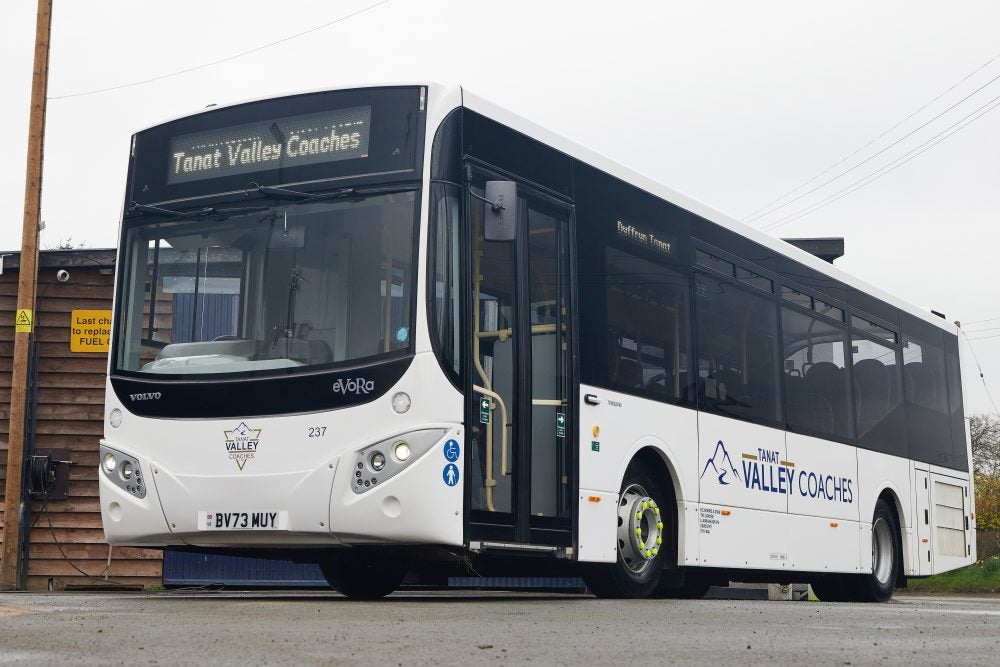BANQUE PSA FINANCE
Solid 2008 results for
Peugeot-Citroën
Despite difficult markets, Banque PSA
Finance (PSA), Peugeot-Citroën’s captive finance arm, has posted
solid results, growing revenue by 4.5 percent, to total €2.1
billion (£1.9 billion) in 2008.
The lessor also increased its market share,
reaching 27.3 percent, compared with 26.1 percent the previous
year; yet saw its operating income dip 8.4 percent, to €557 million
from €608 million in 2007.
In its annual results presentation, the company
also revealed that although new car loans had declined 1 percent,
used vehicle loans had risen by 2.1 percent.
According to the company, the strongest gains in
Western Europe were made in Austria, up 11.4 percent; Germany, up
6.5 percent; Poland, up 17.5 percent; and Slovakia, up 30.7
percent.
How well do you really know your competitors?
Access the most comprehensive Company Profiles on the market, powered by GlobalData. Save hours of research. Gain competitive edge.

Thank you!
Your download email will arrive shortly
Not ready to buy yet? Download a free sample
We are confident about the unique quality of our Company Profiles. However, we want you to make the most beneficial decision for your business, so we offer a free sample that you can download by submitting the below form
By GlobalDataThe lessor also strengthened its collections
processes in Southern Europe and the UK. In particular, the company
said it had “increased specialisation, centralised collection flows
and proactively managed loan defaults.”
The captive’s financing is currently a mix of bank
facilities (40 percent), capital markets (39 percent) and loan
securitisations (21 percent).
“[Our] balance sheet remains solid, thanks to
effective risk management and the limited impact of refinancing
costs despite the liquidity crisis,” PSA said. “We have €6 billion
in undrawn credit lines and are maintaining a European capital
ratio of over 11 percent.”
The €6 billion worth of undrawn credit lines
consist of three €2 billion backup facilities from two syndicates
of banks, which mature in July 2010, June 2012 and June 2014.
The lessor also raised €1 billion through the
securitisation of German automobile loans in July last year; and in
December obtained €446 million in financing through the French
government’s economic stimulus package.
However, reports that the French government has
linked the loans to a requirement that production remains in France
have led the European Commission to look at whether the package
might be infringing EU competition laws.
RCI BANQUE
UK captive posts reduced profit
for FY2008
The UK financing activity of Renault
reflected the difficulties faced in 2008 by the French car
manufacturer, which recently published results showing a 78 percent
fall in profit as a consequence of the global financial
turmoil.
Profits before tax from the UK financing activity,
which is done by RCI Financial Services Ltd, were £12.5 million,
down from £17.3 million in 2007.
Things were better at a global level. RCI Banque,
the financing arm for the Renault-Nissan alliance and a
wholly-owned subsidiary of the French carmaker, reported profits
before tax of €487 million (£432 million), an increase from the
previous year’s figure of €450 million.
RCI Financial Services UK MD Steve Gowler
explained: “The main factor in the reduced profitability from the
UK sales financing activity has been reduced volumes of new
financings as a result of the reduced volumes of new cars
registered by Renault and Nissan in 2008.”
In terms of percentage, Renault and Nissan
registrations financed by RCI Banque in the UK were 26 percent,
split between 28 percent of Renault and 23 percent of Nissan
registrations.
In the rest of Europe, RCI Banque financed 32.3
percent of new Renault, Nissan and Dacia registrations, compared to
33.1 percent in 2007.
Gowler explained that the UK penetration figures
tend to be lower “due to the much higher fleet content in the UK
sales mix.”
GMAC
Motor finance profits tumble
for GMAC
GMAC has announced that its global auto
finance business made a loss of just over $2 billion (£1.4 billion)
in 2008, in sharp contrast to its previous year’s profit of $1.5
billion.
The troubled motor finance provider posted a loss
of $1.3 billion in the fourth quarter. This represents an enormous
decline of 1,058 percent year-on-year.
Reporting on the company’s year-end results, GMAC’s
chief financial officer Robert Hull blamed the poor results on
falling used vehicle prices, weaker credit performance and
mark-to-market related losses.
GMAC incurred important losses in its auto lease
portfolio in the fourth quarter, writing down over $380 million in
the US alone.
“During the third quarter it looked as though
prices might begin to stabilise; however, they took another
downturn in the fourth quarter. [This] led not only to the lease
impairment but to higher depreciation expense,” Hull added.
Funding also remained a problem for GMAC, leading
it to an overall reduction in the number of new leases it wrote –
although, on the international front, this can also be attributed
to the company pulling out of several countries in Europe last
November (the Czech Republic, Finland, Greece, Norway, Portugal,
Spain, and the Slovak Republic).
The company was also hit by decreasing yields and
“other investments”, such as derivatives. Hull said that
unfavourable markets further decreased the business’s income,
particularly the lower interest rates on investments.
However, it was not all bad news at GMAC, which as
a whole managed to post a $7.5 billion profit, driven by an $11.4
billion debt swap on the bond markets – the largest ever
conducted.
FORD MOTOR CREDIT
Year-end loss for
FMC
Ford Motor Credit (FMC) is to lose 1,200
staff in the wake of its parent company’s year-end results, which
showed a savage global loss of $14.6 billion (£10 billion) for the
car industry landmark.
The captive played a significant role in the slump,
posting a $473 million pre-tax loss of its own due in part to a
particularly depressed fourth quarter.
The layoffs – which will dispense with 20 percent
of FMC’s staff – were announced at the end of January before
results were posted, and will begin to be executed during
February.
Nevertheless, Ford’s end of year report document is
insistent that the manufacturer still sees FMC as a “strategic
asset”, and assures that it will “continue to fund the business and
maintain liquidity, including a substantial cash balance” during
2009. FMC has $21 billion in funds available for use, Ford
said.
“[The cutbacks] will help keep our costs in line
with the level of receivables we have,” said a Ford
spokeswoman.
On a wider scale, Ford has applied to the US
government for a $9 billion credit line as insurance against the
further deterioration of the international financial outlook.
It is also expected to receive a $5 billion direct
loan package from a government program to promote fuel economy.







